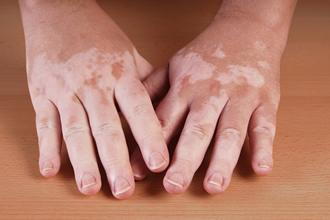
Melanin is a substance produced by skin cells known as melanocytes, which are responsible for giving our skin its color. When these cells are damaged or impacted in some way that they are unable to produce enough melanin, people often deal with skin pigmentation disorders. These disorders may impact just the face or the body, or they may impact everything as a whole. Here’s what you should know about skin pigmentation disorders and how a dermatologist can help.
Melasma
This condition causes dark brown patches to develop on the skin and is more common in women who are pregnant, as well as women who take birth control pills and/or spend time in the sun. You can often prevent melasma by simply wearing sunscreen and staying out of the sun, especially if you take birth control pills. However, those with more moderate to severe brown spots may be prescribed hydroquinone or tretinoin creams, to lighten these patches.
Vitiligo
Instead of dark brown patches, vitiligo causes white patches to develop on the skin. As you might imagine, white patches of skin are very susceptible to sunburns, so you must protect your skin when outside. While this condition can’t be cured there are ways to improve the appearance of the skin through topical creams and medications, as well as light therapy. Your treatment options can be discussed further with your dermatologist.
Albinism
This rare disorder results in a lack of melanin in the hair, skin, and eyes. This is why albinos are often very pale with light blue eyes and white hair. There is no way to reverse or cure this disorder; however, it is incredibly important for someone with albinism to protect their skin and eyes from sun exposure by wearing sunscreen, a hat, and sunglasses whenever they are outside.
Damage to Skin
In some cases, infections or burns can also cause a loss of melanin in certain areas of the face and body. While laser resurfacing, chemical peels, and other treatment options may improve the appearance, in these more minor cases, skin patches can be covered up with special cosmetics.
If you are dealing with skin pigmentation issues it’s always best to see a qualified dermatologist get the answers and specialized care you need to get this disorder under control.
